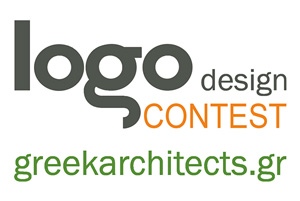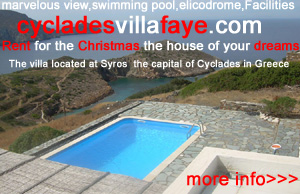NEWS
EVENTS
29 March, 2011
MAO Debates
Not More Not Less. Exploring the wiggle room of contemporary architectural practice.(1 April 2011)
With regard to its immanent powers, architecture today seems to be both under-challenged and over-charged at the same time. This biomorphic paradigm has reduced architecture's potential to just dealing with issues concerning geometry, form-making, and manufacturing, whilst depriving it of any political impact. On the other hand, there is a programmatic notion of practice which reduces architecture to a predominantly political project, ignoring the fact that a building must eventually embody its contents through its tectonic and formal definition.
At a time when the presence of architecture appears to be both larger than life (given its symbolical value as a media spectacle) and close to irrelevant (with regard to its influence in the actual construction of our overall built environment), it is vital to recalibrate the agency spectrum that architecture can truly inhabit. What is this not-less-and-not-more concept? What are the irreducible and quintessential assets that architecture is able to - and needs to - muster in order to optimise its contribution to the formation of our world? Which aspects of its alleged essence can architecture renounce, and which must it defend at all costs? In view of the increasingly market-driven transformation of the construction sector, architects are exposed to questions such as these on a daily basis. When subjected to constantly changing conditions such as a sudden budget cut, a change of developer or a redefinition of a building's programme, architects are required to develop a strategic intelligence regarding the balancing of effort and effect that needs to occur in order to strike a balance between the architectural effects that they desire and the level of effort permitted by the client or, indeed, the circumstances.
The MAO symposium features four international architects and one architectural critic and curator discussing how they deal with these issues in their work Jacob van Rijs, MVRDV, Rotterdam; Mark Lee, Johnstonmarklee, L.A.; Duncan Lewis, Scape architecture, Bordeaux; Jörg Leeser, BeL, Cologne as well as Philip Ursprung, Chair of Architectural History and Theory, ETH Zurich. The symposium has been curated and will be moderated by Ilka & Andreas Ruby, textbild/RUBY PRESS, Berlin.



Programme
09.30 - Registration and coffee
10.15 - Intro, Ilka and Andreas Ruby, Textbild (Berlin)
10.30 - Mark Lee, Johnstonmarklee (Los Angeles)
11.30 - Duncan Lewis (Bordeaux)
12.30 - Lunch
13.30 - Jacob van Rijs, MVRDV (Rotterdam)
14.30 - Jörg Leeser, BeL (Köln)
15.30 - Philip Ursprung, ETH (Zurich)
16.30 - Closing discussion
The symposium will be held in English.
LEcturers
Jacob van Rijs
Jacob van Rijs (Amsterdam, 1964) is one of the founding directors of MVRDV, a global architecture office with a history of providing creative solutions for urban issues. He is currently working on a wide range of projects: the Almere Olympiakwartier Masterplan in the Netherlands, the Eco-City in Logroño, Spain and a series of large-scale housing projects in India and South Korea. In the past, he worked on the TEDA housing project in Tianjin, a high-density housing scheme which experimented with a mix of low-rise and high-rise buildings incorporating traditional Chinese housing typologies that supported the local life-style. He was also responsible for the realisation of the Celosia Residence in Madrid. Jacob van Rijs regularly lectures and teaches at schools and institutions all over the world such as the TU Delft, the Amsterdam Academy of Architecture, the Rotterdam Academy of Architecture, AA London, the Cooper Union in New York, Rice University in Texas, TN Probe in Tokyo and the universities of Madrid and Barcelona.
Philip Ursprung
Philip Ursprung was born in Baltimore, MD, in 1963. He studied art history, history, and German literature in Geneva, Vienna, and Berlin respectively, receiving his PhD from the Freie Universität Berlin. He taught at the University of Geneva, the Hochschule der Künste Berlin, the Graduate School of Architecture, Planning and Preservation of Columbia University, New York and the University of Zürich. He has held the position of Professor of the History of Art and Architecture at ETH Zürich since 2011. He was a visiting curator at the Canadian Centre for Architecture in Montreal where he curated Herzog & de Meuron: Archaeology of the Mind and edited the catalogue entitled Herzog & de Meuron: Natural History (2002). His publications include Grenzen der Kunst: Allan Kaprow und das Happening, Robert Smithson und die Land Art (2003). He contributed to the introduction to Studio Olafur Eliasson: An Encyclopedia (2008) and is co-editor of Images: A Picture Book of Architecture (2004) and editor of Caruso St John: Almost Everything (2008). His most recent book is Kunst der Gegenwart: 1960 bis heute (2010).
Mark Lee
Mark Lee is the principal of Johnston Marklee & Associates. The Los Angeles-based firm has been engaged in a range of institutional, residential, and commercial commissions in California, Texas, Michigan, Illinois and New Mexico, as well as in China, Argentina, Portugal, and Italy since the office opened in 1998. Adopting an interdisciplinary design approach to the exploration of emergent design strategies and solutions for architecture and urbanism, Johnston Marklee has received several awards, including the 2002 Progressive Architecture Design Award, the 2004 and 2006 AIA Los Angeles Honor Awards, the 2007 Merit Award from the AIA California Council, the 2007 American Architecture Award from the Chicago Athenaeum, the Honor Award from the Westside Urban Forum, the Design Award Citation from the AIA Los Angeles and P/A Awards from Architecture Magazine.
Combining his academic and design expertise, Mark Lee conducts speculative research based on critical reassessments of architectural and urban design history. Developing theories on the urban development and housing at border cities, culture-specific topological landscapes, and new design strategies in material form and technology, he has written and lectured widely on his research. Mark Lee has taught at the Federal Institute of Technology (E.T.H.) in Zurich, at the University of California, Los Angeles (UCLA) where he has served as Vice Chair of the Department of Architecture and Urban Design, and currently holds a guest professorship at the Technical University of Berlin.
Duncan Lewis
Duncan Lewis is an architect based in Bordeaux, France. After receiving his Master of Design at the Royal College of Art and Design in London, he lived and worked for three years in Japan, before moving to France in 1990 to establish a practice as a landscape architect. After a series of fruitful collaborations with architects such as Jaques Hondelatte, Lacaton & Vassal, François Roche and Edouard François, he founded "Scape Architecture" his own full-service architecture office in 2001. Since then, he has developed a unique approach of synthesising buildings and the landscape through the incorporation of the vegetal elements of a building's context in its realisation. With a planning portfolio of seven projects for schools, parks, libraries and media libraries due for completion over the next two years, Duncan Lewis is one of the emerging voices in European Architecture yet to be discovered.
Jörg Leeser
Jörg Leeser (Essen, 1967) works as professor of architecture in the urban context design studio at the Peter Behrens School of Architecture in Düsseldorf. He studied architecture at RWTH Aachen University and at the Bartlett School of Architecture in London (1986-1997). Among other positions, he has held the post of project architect at Leeser Architecture (1994-1999), teaching assistant at Rensselaer Polytechnic Institute (1998) in Troy, New York, and project partner at b&k+ in Cologne (1999-2000); he was assistant professor (1999-2006) and later adjunct lecturer (2007-2008) at the constructive design studio of RWTH Aachen University and professor of contextual architecture at the design studio of the University of Wuppertal (2008-2009). In 2000, he also co-founded BeL Associates in Cologne. He has received numerous architectural awards and lectured widely across Europe and America.
Ilka and Andreas Ruby
Trained as an architect and an architecture historian respectively, Ilka Ruby and Andreas Ruby are the founding partners of textbild, an office for architectural communication operating in the spheres of publishing, curating, teaching and consulting (www.textbild.com). Among their publications are titles such as Images. A Picture Book of Architecture (Prestel, 2004), Groundscapes (Gustavo Gili, 2005), Urban Transformation (Ruby Press, 2008), Of Houses and People (HDA Publishers, 2009) and EM2N: Both-And (GTA Publishers, 2009). They have organised international symposia on architecture and design such as Face the Context (Vaduz, 2005), Urban Moods (Design Annual, Frankfurt, 2006) and Urban Prototyping (MAK Vienna, 2007). They curated the Cross-Atmosphering Sadar Vuga (Salon Blauraum, Hamburg, 2004) and Appropriate Design! (Design Annual, Frankfurt, 2007) exhibitions. In 2009, they presented a video-interview-installation entitled Endless Bauhaus at the Modell Bauhaus exhibition in Berlin. In 2008, they founded their own publishing house - Ruby Press (see www.ruby-press.com).
Place : Museum of Architecture and Design (Ljubljana)
Date : 1 April 2011
More information here










